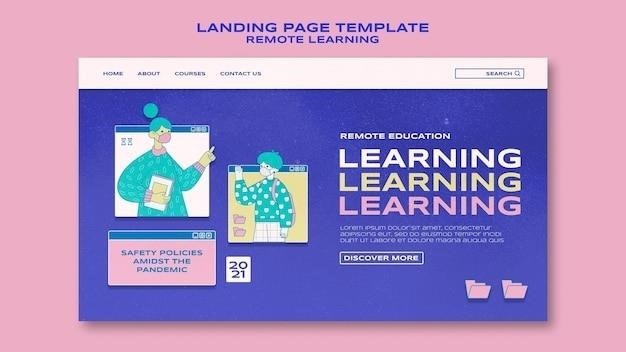Plato’s Dialogues⁚ A Guide to Available PDFs
Discover readily accessible PDF versions of Plato’s dialogues, including Benjamin Jowett’s renowned translation. Explore various online libraries and digital archives offering complete or partial collections. Compare different translations and editions to find the perfect fit for your needs, considering factors like scholarly apparatus and modern interpretations.
Benjamin Jowett’s Translation⁚ A Comprehensive Edition
Benjamin Jowett’s translation of Plato’s dialogues stands as a monumental achievement in Victorian scholarship. His five-volume edition, published in 1892 by Oxford University Press, remains a cornerstone of Platonic studies. Jowett’s work is celebrated for its elegant prose and insightful annotations, providing a rich scholarly apparatus alongside the text itself. Online versions often preserve the original marginal comments and include hyperlinks to the extensive notes, enhancing the reader’s understanding. While some online versions may offer only selected dialogues, the ambition and comprehensiveness of Jowett’s complete edition are undeniable, making it a valuable resource for serious students of Plato. The detailed introductions and analyses accompanying each dialogue further enrich the experience, offering valuable context and interpretation. Locating a complete PDF of Jowett’s five volumes might require searching multiple online libraries and archives, but the reward for such a search is substantial.
Accessibility and Licensing of Online Versions
The accessibility of Plato’s dialogues in PDF format varies considerably depending on the edition and source. Many online libraries and digital archives offer free access to various translations, but licensing restrictions can impact the availability and permissible uses of these digital copies. Public domain works, like some older translations, are often freely available for download and distribution under Creative Commons licenses or similar agreements. However, more recent translations or editions might be subject to copyright restrictions, limiting their accessibility to paid subscriptions or institutional access. Always check the specific licensing terms before downloading or distributing any PDF version of Plato’s dialogues to ensure compliance with copyright laws. Understanding these legal nuances is essential for responsible and ethical engagement with online resources. The Online Library of Liberty, for example, provides many texts under specific licensing agreements, which should be carefully reviewed.
Variations in Available Dialogues Across Editions
The selection of dialogues included in available PDF versions varies significantly across different editions. Some editions focus on a specific subset of Plato’s works, such as his five most famous dialogues, offering a concise introduction to his philosophy. Others provide comprehensive collections encompassing nearly all of his known writings. The choice of dialogues often reflects the editor’s or translator’s interpretation of Plato’s corpus or the intended audience for the edition. Certain dialogues might be omitted due to authenticity debates among scholars, their perceived difficulty for introductory readers, or even simple editorial choices. This variability means that readers should carefully consider the specific contents of any given edition before selecting it, ensuring it aligns with their learning goals and desired level of textual engagement with Plato’s thought. Some collections may include supplementary materials like introductions, notes, and commentaries, while others focus solely on the dialogues themselves.
Finding Plato’s Dialogues in PDF Format
Numerous online resources offer Plato’s dialogues in PDF format. Explore online libraries, digital archives, and initiatives like Project Gutenberg for various editions and translations.
Online Libraries and Digital Archives
Many online libraries and digital archives host digitized versions of Plato’s dialogues, often in PDF format. These institutions frequently offer access to public domain texts, making them freely available for download. The Online Library of Liberty, for example, provides a substantial collection of classical works, including various editions and translations of Plato’s dialogues. Searching their catalog using keywords like “Plato,” “dialogues,” and “PDF” will yield relevant results. Remember to check the licensing information before downloading or distributing any material. Other digital archives, such as those affiliated with universities and research institutions, may also provide access to scholarly editions of Plato’s works. These resources often include valuable annotations and scholarly apparatus that enhance understanding. Always verify the legitimacy and authenticity of the source before utilizing any PDF found online. Exploring multiple sources ensures a wider selection of available texts and translations. This approach helps researchers find the best edition suited to their specific needs and preferences.
Project Gutenberg and Similar Initiatives
Project Gutenberg, a renowned digital library offering public domain ebooks, is a valuable resource for accessing Plato’s dialogues in PDF format. They provide various translations, often in plain text format which can then be converted to PDF using readily available tools. While Project Gutenberg might not always offer the most meticulously edited or annotated versions, they provide a readily accessible entry point to Plato’s works. Similar initiatives dedicated to providing free digital books often include Plato’s dialogues in their collections. These projects are driven by a commitment to making classic literature accessible to a global audience, and their offerings can be a great starting point for anyone interested in exploring Plato’s philosophy. However, remember to always check the source’s reliability and compare different versions available from various sources to ensure accuracy and completeness. Exploring these diverse online resources is crucial for acquiring a comprehensive understanding of Plato’s philosophical contributions.
Specific Editions and Their Availability
Locating specific editions of Plato’s dialogues as PDFs requires diligent searching across various online platforms. The availability of particular editions, such as Benjamin Jowett’s five-volume set, can vary greatly depending on the website or digital archive. Some might offer single dialogues, while others might host complete collections. Factors influencing availability include copyright restrictions and the digitization efforts of individual institutions. Searching for specific titles, like “Plato’s Republic,” “The Apology,” or “Symposium,” along with keywords like “PDF,” “Jowett,” or “Grube,” can improve search results. Always verify the source’s authenticity and reliability before downloading any PDF to ensure the text’s accuracy and integrity. Remember to respect copyright laws; only download PDFs from legitimate sources that offer public domain works or have obtained necessary permissions. This careful approach is essential for accessing high-quality, reliable versions of Plato’s dialogues.

Exploring Different Translations and Editions
Compare Jowett’s classic translation with modern interpretations by Grube and Cooper. Consider the impact of each translator’s choices on the reader’s understanding of Plato’s philosophy. Analyze the scholarly apparatus and notes provided in different editions.
Jowett’s Impact and Scholarly Apparatus
Benjamin Jowett’s five-volume translation of Plato’s dialogues, published in 1871 and revised in 1892, profoundly shaped English-language engagement with Plato for over a century. Its impact stems not only from its readability but also from its extensive scholarly apparatus. Jowett’s introductions and notes offer invaluable context, illuminating the historical and philosophical background of each dialogue. His commentary often delves into the intricacies of the Greek text, providing insights into word choices and their nuances. The sheer volume of his annotations demonstrates a deep engagement with Plato’s work, making his edition a rich resource for scholars and students alike. This detailed approach, however, sometimes reflects the Victorian biases of its time, influencing interpretations and potentially overlooking alternative perspectives. The availability of Jowett’s work in digital formats allows modern readers to engage with this influential edition while critically considering its historical context. Many online versions preserve the original marginal comments and links to notes, enhancing accessibility.
Comparing Different Translators and Interpretations
Engaging with multiple translations of Plato’s dialogues reveals diverse interpretative approaches. While Jowett’s version remains influential for its readability and extensive notes, modern translations often prioritize accuracy and nuance over stylistic fluency. Comparing different renderings of key passages highlights the complexities of translating ancient Greek philosophy into contemporary English. Translators’ choices regarding vocabulary, sentence structure, and overall tone reflect their understanding of Plato’s philosophy and the historical context. Some translations aim for a literal rendering, while others prioritize conveying the meaning and spirit of the original. These variations can significantly affect the reader’s understanding and interpretation. Consulting multiple translations provides a richer understanding of the dialogues, showcasing the ongoing evolution of scholarly interpretation and the inherent challenges of cross-cultural communication in philosophical discourse. Accessing multiple versions in PDF format facilitates this comparative study.
Grube and Cooper’s Edition⁚ A Modern Approach
G.M.A. Grube’s translation of Plato’s dialogues, revised by John Cooper, represents a significant departure from earlier versions like Jowett’s. This edition prioritizes a more literal and accurate rendering of the Greek text, striving for fidelity to Plato’s original language and structure. Unlike Jowett’s sometimes paraphrastic style, Grube and Cooper aim for a closer adherence to the nuances of the original Greek, even if it results in less fluid English prose. This approach offers readers a more scholarly and rigorous engagement with Plato’s thought. The inclusion of detailed footnotes and introductory materials provides valuable context and clarifies complexities within the text. While potentially less accessible to novice readers, Grube and Cooper’s edition is highly valued by scholars and those seeking a more precise understanding of Plato’s philosophical arguments. The availability of this edition in PDF format allows for convenient access and ease of comparison with other translations.

Utilizing Online Resources for Plato’s Dialogues
The Online Library of Liberty and Project Gutenberg offer valuable digital resources for accessing Plato’s dialogues in PDF format. Effective study requires careful navigation of these digital texts.
The Online Library of Liberty and its Offerings
The Online Library of Liberty (OLL), a project of Liberty Fund, Inc., provides a significant collection of classical texts, including various editions and translations of Plato’s dialogues available as PDFs. The OLL’s mission focuses on promoting the study of individual liberty and free societies, making their resources freely accessible to scholars and the public alike. Their digital library contains meticulously curated works, often including scholarly apparatus such as introductions, notes, and indices, enhancing the reader’s understanding and engagement with Plato’s philosophical inquiries. Users can download and study these PDFs for personal use, contributing to a deeper appreciation of Plato’s impact on Western thought and political philosophy. The OLL’s commitment to open access ensures that Plato’s dialogues remain readily available for continued study and interpretation.
Other Online Platforms Hosting Plato’s Works
Beyond the Online Library of Liberty, numerous digital platforms offer access to Plato’s dialogues in PDF format. Project Gutenberg, a renowned repository of free ebooks, often includes various translations and editions of Plato’s works, readily downloadable for personal use. Many university libraries and digital archives also provide access to digitized versions of Plato’s dialogues, often integrated into their online catalogs. These resources may offer different translations, varying in style and interpretation, allowing for comparative study. Additionally, specialized philosophical websites and online bookstores sometimes provide PDFs of specific editions, frequently accompanied by supplementary materials such as critical essays or commentaries. Remember to always check licensing information before downloading or distributing any PDF to ensure compliance with copyright regulations.
Navigating Digital Resources for Effective Study
Effectively utilizing online Plato resources requires a strategic approach. Begin by identifying your specific needs⁚ Are you seeking a particular translation or edition known for its clarity or scholarly apparatus? Prioritize reputable sources like university libraries and established online archives to ensure accuracy and authenticity. When comparing different versions, consider the translator’s approach and the edition’s inclusion of introductions, notes, and other scholarly materials. Utilize PDF annotation tools to highlight key passages, add personal notes, and create a customized study guide. Organize your downloaded PDFs systematically to avoid confusion. Remember that while digital access is convenient, it is crucial to engage critically with the text, supplementing online versions with scholarly commentaries where appropriate for a deeper understanding of Plato’s philosophy.



